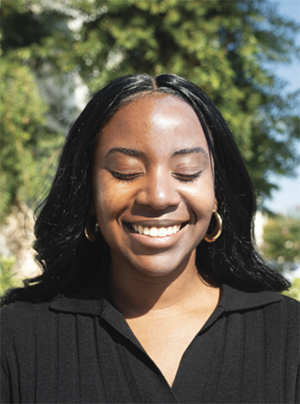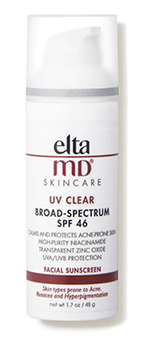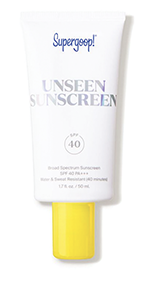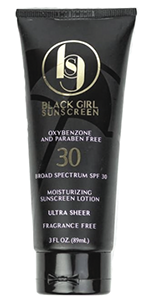Growing Interest in Sunscreen among Black women
To prevent skin cancer and promote even skin tone
I went to a couple of beauty supplies and asked them, “do you have sunscreens or sunblocks?” Virtually everywhere I went, the answer was “no.” If you go to a Sephora store or the cosmetics section of a department store, you would find the sunscreen in a high traffic area in preparation of the upcoming summer season. Why don’t beauty supplies carry them for their customers, who are mainly African American women? While an increasing number of cosmetic brands market primers and foundations that come with UV protection, in the beauty supply retail stores, you could not find them easily.
Do African American women have no need for sunscreens? As they have a darker skin tone, many of them are little conscious of preventing sunburn with sunscreens. In 2020, the Consumer Report surveyed 2,007 adult Americans and found that 61% of African Americans and 23% Hispanics had never used sunscreen. On the other side, the American Academy of Dermatology says that everyone should wear sunscreen.

A women who applied sunscreen on a half of her face ©Blackgirlsunscreen
Benefits of sunscreen
It is known that people with darker skin tone have a stronger protection against the harmful effect of UV rays from the sun. However, Dr. Maritza Perez, a faculty of a medical school in New York, says, “the UV rays hit every skin at the same strength.” It is a fact that darker skin contains more melanin that can reduce the damages from the UV rays.
However, it is also a fact that the darkest skin can provide only up to the level of Sun Protection Factor (“SPF”) of 13, so when exposed for a longer period, the skin damages, and even cancer, can occur to anyone. A research in 2014 on emergency visits due to skin damages found that African Americans wore 9 times less sunscreen than Caucasian Americans. When you have a lighter skin tone, the lack of melanin makes your sunburn highly noticeable, but African Americans are slow to react due to their darker skin tones.
No sunburn does not necessarily mean no skin damage. If you apply sunscreens regularly, you can significantly reduce the likelihood of developing skin cancer. While skin cancers can be treated if found early, African Americans tend to discover the skin cancer symptoms at a later stage. Reducing the wrinkles and slowing down the aging of skin are also the benefits of sunscreen. When exposed to UV, the skin may develop dark spots due to hyper-pigmentation, which makes you hard to maintain even skin tone.
According to Dr. Jeanine Downie, a dermatologist in New Jersey, “colored people including African Americans have very low awareness of sunscreen, and even doctors pay little attention to the possibility of skin cancer when treating them, which can lead to finding skin cancer at a more critical stage.” WHO’s International Agency for Research on Cancer (“IARC”) classified the UV rays a Group 1 carcinogen.
Growing interest in sunscreen and popular products
Amongst the African American YouTubers who run beauty and skincare channels sharing tips on self-skincare and makeup, a growing number of them are recommending wearing sunscreens. Many of them encourage followers to pay more attention to having healthier skin. They recommend silky-type sunscreens that do not leave white residue or film for people with darker toned skin. What products sell well?
Black Girl Sunscreen
Reviewers say this vegan, no-scent lotion applies lightly and maintains the skin moist.
EltaMD UV Clear Facial Sunscreen

With niacinamide and lactic acid, it controls excess sebum production, making it popular among people with blemish-prone skin.
Supergoop Unseen Sunscreen

Many beauty editors love it. Its less oily formula leaves virtually no white residue, making a perfect addition to your pre-makeup routine. Its silky texture makes it hugely popular.
Among African American women, sunscreens are of low priority yet. They often believe that clothes, hats, and shades provide ample protection. Nevertheless, based on medical research and through word of mouth on the internet, the importance of sunscreen is spreading and anticipated to keep raising people’s awareness. Why would you wait to have sunscreens, sunblocks, and sun lotions in the store when more and more people are looking for them?
——————————————————–
**SPF numbers and ingredients to look for
You can find, in the label of a sunscreen product, the PA (protection grade of UVA) and the SPF (Sun Protection Factor). PA is a rating system with + signs where ++++ is the max amount of protection available. And the higher number of SPF provides more UVB protection. Today, you can find SPF 100 products in the market. SPF 30 stands for 97% blocking of UVB radiation, 50 for 98%, and 100 for 99%. It is also known that SPF provides protection from sunburn in a factor of 15 times in duration. In other words, you can reduce the strength of sunlight from 30 to 1 with SPF 30 sunscreen.
However, higher numbers do not mean better products. If you are not exposed to the sunlight for an extended period, SPF 30 provides enough protection. Also, chemicals used in sunscreens such as avobenzone, homosalate, octinoxate, octisalate, octocrylene, and oxybenzone can penetrate your blood vessels, so the FDA recommends using mineral-based sunscreen.
——————————————————–
